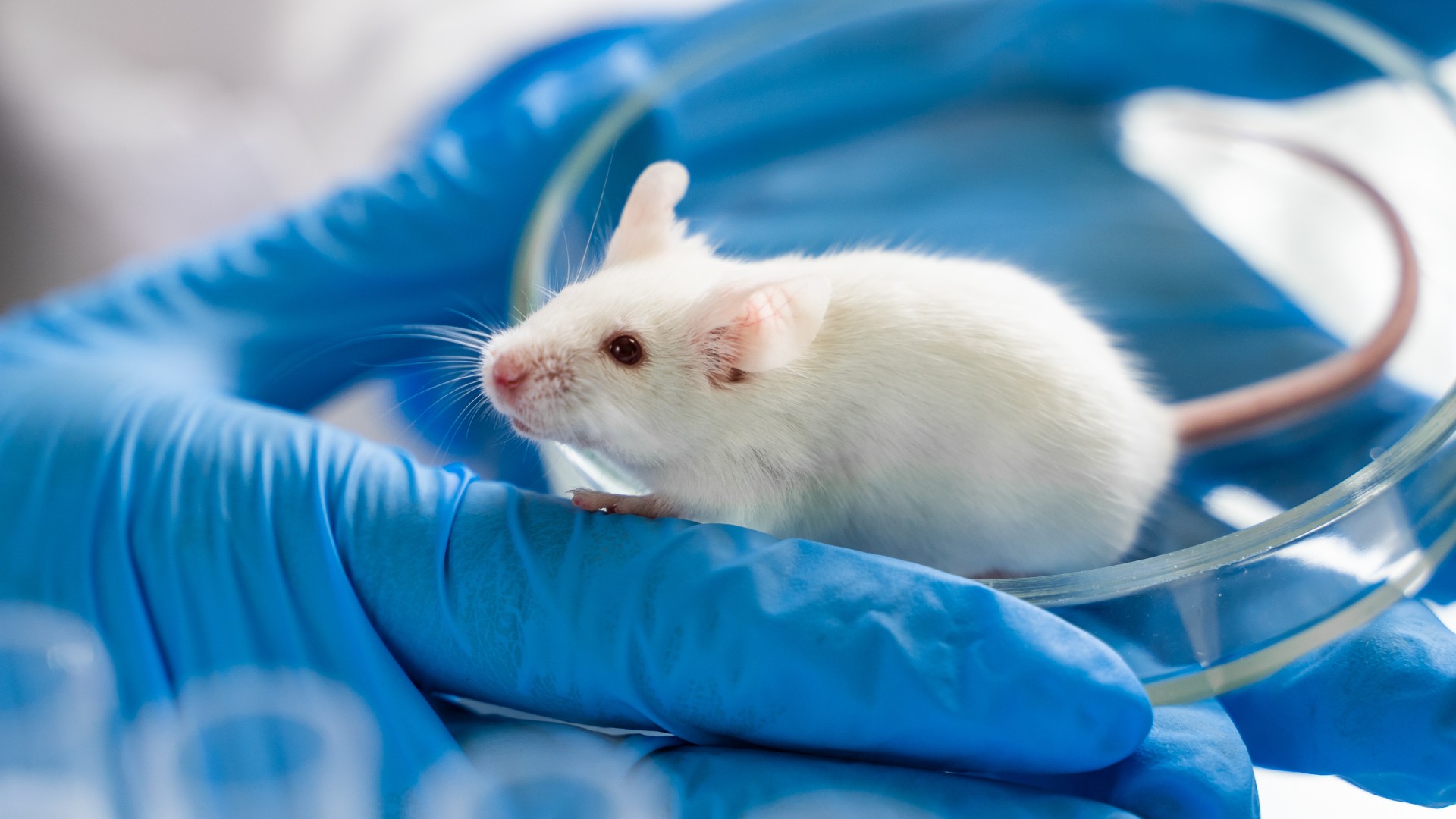Scientists breed most human-like mice yet
Scientists have bred mice that are just like us — at least in terms of their immune systems.

For the first time, scientists have bred mice with fully fledged human immune systems. The researchers say these human-like animals will enhance drug development.
When faced with an infection, these "humanized" mice produce immune cells that mimic the structure and diversity of the immune cells made by humans. When injected with a chemical that triggers widespread inflammation in the body, the mice develop a version of the autoimmune disease lupus that closely resembles that seen in humans, the researchers discovered.
The scientists described their findings in a paper published June 25 in the journal Nature Immunology.
These are not the first humanized mice ever bred — the lab animals are staples in research as they enable scientists to study features of the human immune system inside a living animal. This is helpful for testing the safety and effectiveness of new drugs, as well as vaccines against infectious diseases, before they are trialed in humans.
Related: New immunotherapy could make blood more 'youthful,' mouse study hints
However, for years, researchers have struggled to create humanized mice that accurately respond to infection in the same way that humans do. Previous attempts have resulted in approximations of the human immune system, but these are missing certain human features, the team behind the new paper said in a statement.
To develop a better humanized mouse, the researchers first bred mice that had been genetically modified to have a weakened immune system. When the mice were around 1 to 2 days old, the team injected human stem cells into the animals' hearts. The stem cells, which had been extracted and purified from umbilical cord blood, were capable of becoming any type of immune cell.
Get the world’s most fascinating discoveries delivered straight to your inbox.
The animals' hearts then pumped the stem cells into the soft, spongy tissue within the mice' bones, known as bone marrow, which is where immune cells are normally produced. Because the mice were immunodeficient, the human stem cells could easily set up camp in the bone marrow.
After a few weeks, the team introduced a human version of the sex hormone estrogen into the mice. This hormone is known primarily for its role in promoting female sexual and reproductive development, but it also plays a big part in molding immature stem cells into mature, specialized immune cells.
Once imbued with human estrogen, the mice began to make a plethora of human immune cells. These included T cells, which directly attack germs, and B cells, which produce bug-busting antibodies that help mark pathogens for destruction.
To see how the humanized mice reacted to a vaccine, the team injected the animals with the COVID-19 vaccine made by Pfizer-BioNTech. In response, the mice produced human antibodies against the coronavirus, SARS-CoV-2. Similarly, when exposed to proteins from Salmonella typhi bacteria, the bug behind typhoid fever, the mice made antibodies against the pathogen.
The new mouse model could become a valuable tool for biomedical research, the team said. In particular, these mice will be useful for vaccine development, said Dr. Paolo Casali, a co-senior study author and professor of medicine at the University of Texas.
As the new mice have a "100% human immune system," researchers can use them to test how vaccines will behave in a living body. In the early stages of research, such tests can't be done in humans for ethical reasons, Casali told Live Science.
The mice could also be used to develop new therapies that work by tweaking the activity of the immune system, such as checkpoint inhibitors for cancer, he said. These drugs help the immune system to better target cancer cells for destruction.
Using mice that have a human immune system could help facilitate this kind of research, potentially even removing the need to use non-human primates, the team said in the statement.
Ever wonder why some people build muscle more easily than others or why freckles come out in the sun? Send us your questions about how the human body works to community@livescience.com with the subject line "Health Desk Q," and you may see your question answered on the website!

Emily is a health news writer based in London, United Kingdom. She holds a bachelor's degree in biology from Durham University and a master's degree in clinical and therapeutic neuroscience from Oxford University. She has worked in science communication, medical writing and as a local news reporter while undertaking NCTJ journalism training with News Associates. In 2018, she was named one of MHP Communications' 30 journalists to watch under 30.


